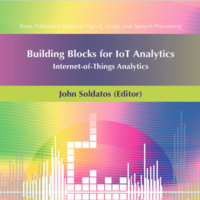Search
Books+
Searching 1,730 books
Search related to the career Business Intelligence Analyst
Business Intelligence Analyst
A Business Intelligence Analyst is a professional who uses data analysis and reporting tools to gather, analyze, and interpret complex data sets to help organizations make informed business decisions. They play a crucial role in identifying trends, patterns, and insights from data to provide actionable recommendations to improve business performance.
Key Responsibilities:
1. Data Collection and Analysis: Collect and consolidate data from various sources, such as databases, spreadsheets, and reports. Analyze data using statistical techniques and data visualization tools to identify trends, correlations, and patterns.
2. Business Reporting: Develop and maintain regular reports and dashboards to track key performance indicators (KPIs) and provide insights to stakeholders. Present findings in a clear and concise manner to facilitate decision-making.
3. Business Performance Monitoring: Monitor and analyze business performance metrics to identify areas for improvement and opportunities for growth. Collaborate with cross-functional teams to develop strategies and initiatives based on data-driven insights.
4. Data Quality Assurance: Ensure data accuracy, integrity, and consistency by implementing data quality controls and performing regular data audits. Identify and resolve data quality issues to maintain reliable and trustworthy data.
5. Forecasting and Predictive Analysis: Utilize statistical modeling and forecasting techniques to predict future business trends and outcomes. Provide recommendations for resource allocation, demand forecasting, and risk assessment.
6. Market and Competitive Analysis: Conduct market research and competitive analysis to identify market trends, customer preferences, and competitive positioning. Use this information to support strategic decision-making and identify business opportunities.
7. Technology and Tool Evaluation: Stay updated with the latest business intelligence tools and technologies. Evaluate and recommend appropriate tools and software to enhance data analysis and reporting capabilities.
8. Collaboration and Communication: Collaborate with stakeholders across different departments to understand their data needs and provide analytical support. Communicate findings and insights effectively to both technical and non-technical audiences.
Skills and Qualifications:
- Strong analytical and problem-solving skills
- Proficiency in data analysis and visualization tools (e.g., SQL, Tableau, Power BI)
- Knowledge of statistical analysis techniques and predictive modeling
- Familiarity with data warehousing concepts and database management systems
- Excellent communication and presentation skills
- Business acumen and understanding of organizational dynamics
- Attention to detail and ability to work with large datasets
- Ability to work independently and as part of a team
- Continuous learning mindset to keep up with evolving technologies and industry trends
Overall, a Business Intelligence Analyst plays a vital role in transforming raw data into meaningful insights that drive strategic decision-making and business growth.
Source: Various AI tools
Searched in English.









